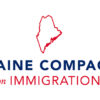HIGH-SKILLED IMMIGRANTS IN GEORGIA
Date: April 14, 2015
Learn more about the need for high-skilled immigration reform at www.LetPJStay.com
GEORGIA FACES A LARGE STEM SHORTAGE
- There are more STEM job openings than unemployed STEM workers: From 2009 to 2011, two STEM job openings were posted online in Georgia for every 1 unemployed STEM worker in the state.
- As STEM fields grow, this problem will likely get worse: Georgia will need to fill 189,830 new STEM jobs by 2020.
- The healthcare industry in particular will be affected by a shortfall of STEM workers: The federal government estimates Georgia will be short 32,043 registered nurses (RN) by 2020, leaving 40.1 percent of the state’s RN positions unfilled, and the University of Georgia Board of Regents has predicted the state will be short 2,500 doctors by 2020, costing the state $5.4 billion in expected emergency-room costs.
- Georgia’s healthcare industry fairs poorly when compared to other states: Georgia ranks 41st in the United States when it comes to the number of doctors per capita.
IMMIGRANTS ARE FILLING STEM SHORTAGES IN GEORGIA
- Immigrants are over-represented in the STEM workforce: Immigrants are 9.6 percent of Georgia’s population, but in 2010, more than one in five STEM workers with an advanced degree in Georgia were foreign-born.
- Immigrants play a critical role in the healthcare industry: In 2012, 20.6 percent of physicians in Georgia had graduated from a foreign medical school, a population that is overwhelmingly immigrant.
IMMIGRANTS INCREASINGLY POWER GEORGIA’S INNOVATION ECONOMY
- Immigrants are more likely to study STEM than the native-born: In 2009, 47.8 percent of the students earning master’s or PhD degrees in STEM fields from Georgia’s research-intensive universities were foreign-born.
- Immigrants are inventing the products that will drive innovation over the coming decades: In 2011, more than 88 percent of patents awarded to the Georgia Institute of Technology had at least one foreign-born inventor, and 66 percent had at least one foreign-born student, postdoctoral fellow, or researcher, groups with no clear path to stay in the United States after graduation. In FY 2010, the university earned $2.3 million in patent licensure revenue.
HIGH-SKILLED IMMIGRATION REFORM WOULD HELP GEORGIA’S COMPANIES COMPETE AND CREATE AMERICAN JOBS
- High-skilled visa holders create jobs for U.S.-born workers: The new H-1B visas awarded to Georgia between 2010 and 2013 will translate into 15,705 new jobs for U.S.-born workers in the state by 2020.
- Our visa system is costing jobs and revenue: Firm-level data from the 2007 and 2008 H-1B lotteries shows that the H-1B caps from those two years alone cost U.S.-born tech workers in the Atlanta metropolitan area as many as 11,052 additional jobs and as much as $134.6 million in aggregate annual earnings by 2010.


